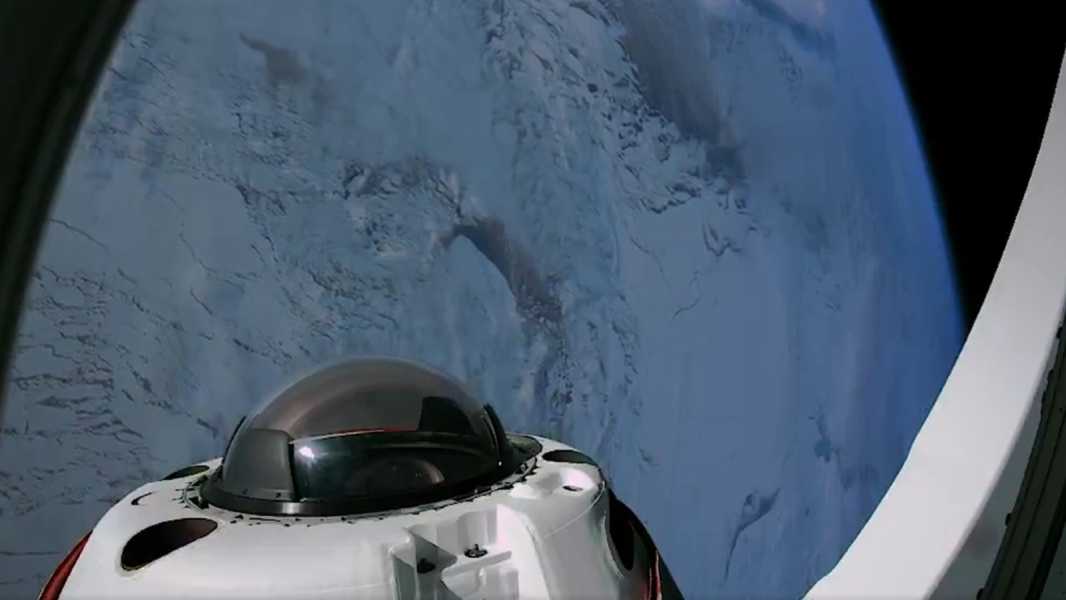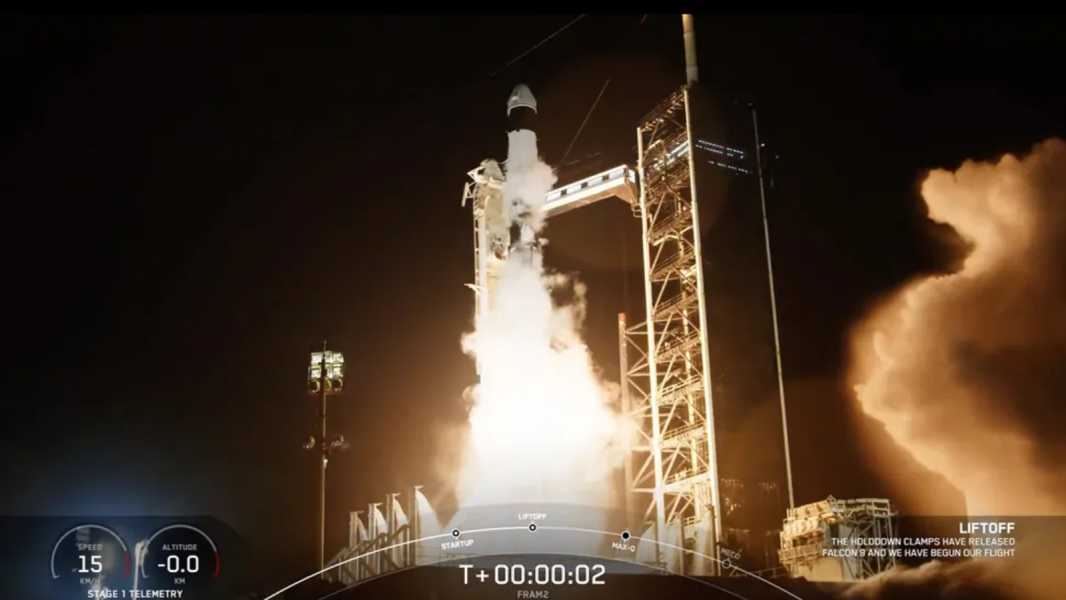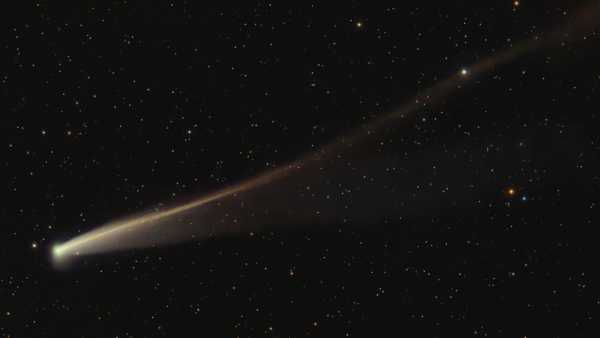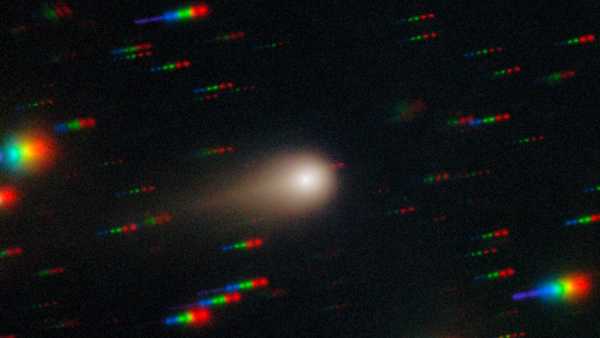
Images from SpaceX released on April 1 showed that the privately-owned Fram2 mission successfully delivered humans to “polar orbit” for the first time. (Image courtesy of SpaceX)
A Bitcoin billionaire and three other rookie astronauts are currently orbiting the Earth's poles in a first for manned spaceflight, embarking on a roughly four-day mission to “advance space exploration” by performing some unusual experiments. But some experts are skeptical about how much they can learn in such a short period of time, and whether science is the real goal of the project.
On Monday (March 31), Maltese cryptocurrency magnate Chun Wang and other members of the Fram2 mission entered low Earth orbit aboard SpaceX's Crew Dragon “Resilience” capsule, which launched into space on a Falcon 9 rocket from NASA's Kennedy Space Center in Florida at about 9:46 p.m. ET, according to Live Science sister site Space.com. (The name Fram2 is in honor of the Fram expedition, which explored the Arctic from 1893 to 1896.)
Wang, who is managing and funding the mission, was accompanied by Norwegian operator Jannicke Mikkelsen, German robotics engineer Rabea Rogge, and Australian polar explorer Eric Phillips — all of whom underwent about eight months of training for the flight, according to Spaceflight Now. The group is expected to return to Earth within three to five days of liftoff, landing off the coast of California.
A statement released March 24 outlined the two main goals of the Fram2 mission: to make the first human spaceflight above the Earth’s poles and to conduct research that could help guide future space travel. The 22 experiments planned range from traditional space tests measuring physiological changes experienced by astronauts to first-of-their-kind experiments like growing mushrooms and X-raying each other. All will be conducted in a 13-foot-wide (4-meter) habitat.
“With the same pioneering spirit as the first polar explorers, we aim to bring back new data and knowledge to advance the long-term goals of space exploration,” Wang said. “The science and research projects on board will inform our preparations for future missions, ultimately helping to make space more accessible to everyone.”

The Fram2 crew launched on a Falcon 9 rocket on Monday (March 31) from NASA's Kennedy Space Center.
Despite the ambitious mission plan
Sourse: www.livescience.com





